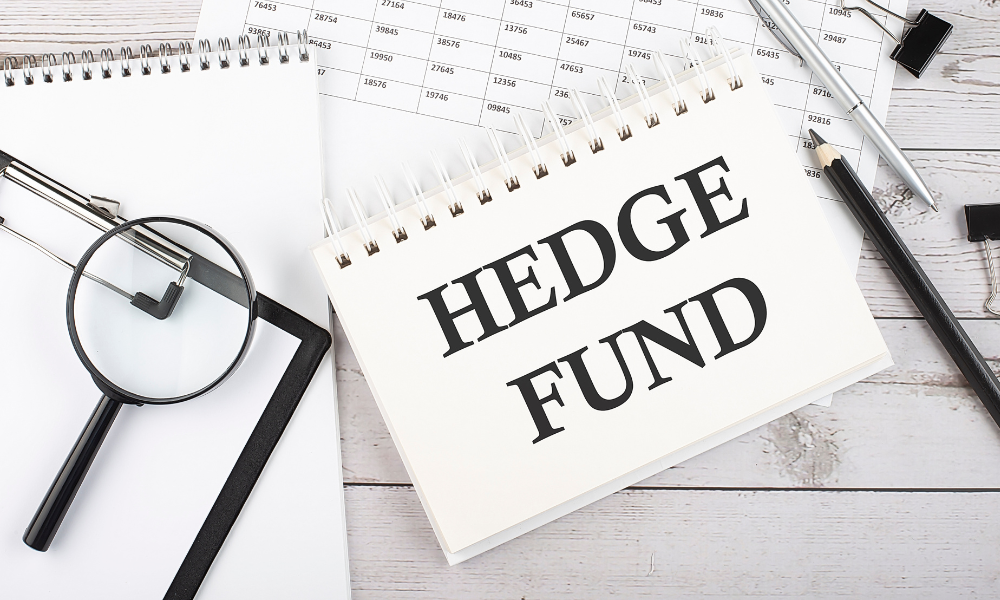Margin calls and volatility shake markets as Trump tariffs drive hedge funds out of stocks

The escalating fallout from US President Donald Trump's sweeping tariff strategy has triggered a global wave of equity selloffs, margin calls, and market panic.
These developments are ones that Canadian financial advisors may need to monitor closely amid heightened volatility and de-risking activity worldwide.
According to Reuters, some hedge funds have exited all or most of their stock positions as market losses deepen and borrowing capacity shrinks.
“The macro picture is getting very chaotic, and I cannot see the future clearly at all,” said William Xin, chair of Spring Mountain Pu Jiang Investment Management in Shanghai, who liquidated his China and Hong Kong holdings just ahead of a local holiday.
Following the announcement of broad reciprocal tariffs affecting almost all trading partners, markets have tumbled globally.
The S&P 500 (.SPX) dropped 10.5 percent over two trading days, wiping out approximately US$5tn in value. China's CSI300 (.CSI300) fell over 5 percent on Monday.
The pan-European STOXX index (.STOXX) is now down more than 14 percent from its March 3 high, officially entering correction territory.
For Canadian advisors with clients exposed to international equities or leveraged strategies, the recent shifts highlight systemic vulnerabilities.
The sharp moves in equities have been mirrored by a surge in volatility indexes like the VIX (.VIX), while bonds have become both a haven and a signal for expected rate cuts from the Federal Reserve.
JPMorgan analysts noted that hedge funds pursuing long-short equity strategies have been “minting” short positions at a rapid pace.
Net leverage, or the difference between long and short bets, has fallen and may now be near the lowest point since late 2023. The bank also reported commodity trading advisors—who trade futures contracts—have turned record-level bearish on equities.
According to its equity strategy team, these positions leave managers vulnerable to a “short squeeze” if any unexpectedly positive news arises.
Pressure is likely to persist. JPMorgan estimated that volatility-targeting portfolios may need to sell US$25bn to US$30bn in stocks in the near term, while levered ETFs could add another US$23bn in forced sales.
Tara Hariharan of New York-based NWI Management said her hedge fund is staying away from stocks entirely for now, favouring long positions on the Japanese yen and the front end of US treasuries.
“Trade ideas currently do not include stocks at the moment,” she said.
The unwinding of riskier positions, fuelled by falling values in margin accounts, may hold specific implications for Canadian advisors working with high-net-worth clients or funds using borrowed capital.
Hedge funds that rely on margin trading are now under stress as prime brokers issue margin calls—forcing them to either deposit more capital or liquidate assets.
David Seif, chief economist for developed markets at Nomura in New York, said, “In market selloffs like this, panic and forced selling via margin calls can dominate for a while.”
He added, “That’s not to say that it isn’t based on a very real negative event, which is these tariffs. But I think the ensuing selloff can take on a life of its own.”
Even gold, typically viewed as a safe haven in volatile markets, has dropped since Trump unveiled his “Liberation Day” tariffs on April 2.
Michael Wilson, equity strategist at Morgan Stanley, warned that forced selling is increasingly evident.
“There are some indications of forced selling or liquidation in the market,” he wrote, pointing to declines even in defensive stocks that usually hold up better during downturns.
Canadian portfolios with international exposure—particularly to China—could be indirectly affected.
Bob Zhang, managing partner at Beijing-based Pine Street Capital, cut net exposure to Chinese stocks from 100 percent in January to just 25 percent and added downside hedges.
“The volatility in China might just be starting, as positions are very crowded, and some people are trying to catch a falling knife.”
The Hong Kong tech sub-index (.HSTECH) has dropped more than 27 percent in a month, retreating to levels last seen at the start of the year.
Meanwhile, China has imposed retaliatory tariffs in response to the US measures, adding more uncertainty for advisors with emerging markets exposure.
While Chinese investors may be less exposed to margin calls due to earlier-year gains, Canada’s own market participants should be alert to ripple effects.
Outstanding margin finance in China remains elevated at 1.9tn yuan (about US$260bn) as of April 3.
In South Korea, where a short-selling ban was just lifted, data from the Korea Financial Investment Association (KOFIA) showed a sharp spike in margin-call-triggered stock sales.
These sales reached US$19.15m between April 1 and April 3—more than double the total for all of March and the highest monthly level since September 2023.
A portfolio manager at a large US multi-strategy fund based in Hong Kong told Reuters, “Too many uncertainties around, and everyone is de-grossing given the elevated market volatility.”
The manager added that the selloff appeared to be ongoing, noting that position unwinding typically affects hedge funds sequentially.
For Canadian advisors, the current global pullback reinforces the importance of active risk monitoring, stress testing across asset classes, and client education around liquidity events like margin calls and short squeezes.



